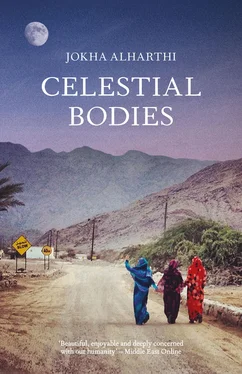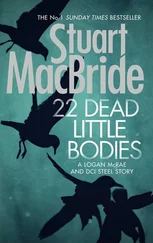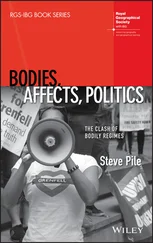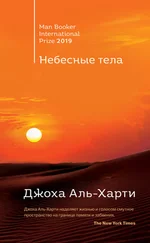My head is splitting now, and the cabin pressure will certainly detonate it, until it explodes wide open. Why do I never carry headache remedies with me, like all the rest of God’s travelling creatures do?
In the Shaykh’s house, my hand touched the meat only after having a dozen or so little bites that were only rice, to soar in the stratosphere of my father’s approval. We were nearly home when a desert viper lunged at me. If my father hadn’t immediately borne down on it with his cane, killing it then and there, it would have bitten me to death. When my papa hugged me so intensely it hurt, my eyes were open to their widest and, my nose crushed against him, I breathed in the particular smell of his dishdasha. I could see stars dropping from God’s sky to cling to his turban so hard that they blended into its ornaments.
I had never in my life seen a souq. The one shop in al-Awafi, and the festival sweet biscuits laid out on wooden planks at the edge of the space where religious ceremonies were always held — that was all I knew. The Ibri souq was simply a corridor of facing shops, or perhaps these were more like warehouses since I couldn’t see any merchants inside, waiting for customers. They sat on mats on the ground or on the stone benches outside their shops, with various baskets of different sizes lined up before them, carrying a variety of goods: dried dates, spices, dried lemons, red peppers, barley. Sometimes there would also be a tray or two of dried coconut. I’m certain it was those enormous tin platters of dried coconut that preserved my memory of that day so vividly that I can still see it and smell it even now: the souq exactly as it looked then. Closing my eyes, I can see the tree trunks and the arcing date-palm fronds, creating a vault overhead that knitted the two separate rows of shops into one entity. I can see the iron hooks from which wool carpets were hung, and the baskets, leather pelts, reed mats, and even the dried fish whose sharp odour still comes to me instantly. Boys scampered here and there, most often wearing the leather belts that already awaited the daggers they’d receive in days to come. The merchants exchanged news, stared at people indifferently and waved their canes in the air. What drew my gaze was the red colours of their turbans, the jumble of smells, the heaps of coconut. I liked it all.
Directly on the ground sat the barber, ramrod straight, a turban on his head and a dagger in his belt, sleeves rolled up to show his bare forearms. His customer sat down facing him but leaving enough space that he could bend forward slightly, signalling that he was ready to entrust his head to the broadly grinning barber. Unlike the barber, his customer wasn’t sitting on bare ground but on a ragged square of rough canvas onto which his shaven hair would fall. The barber had his tools laid out next to him on an ancient wood chest along with a small bucket of water which he sprinkled on the customer’s head. When the customer arose it was invariably with a shaven head since this barber had no experience actually cutting hair. All he could do was shave it to the roots.
I don’t know what roused all of those smells in me as Mayya and I stood on the verge watching. A very fine large villa was going up on the plot of land that she had chosen and the municipality had refused to sell to us — the land which was included in the future planning for the governorate’s multi-lane highway. Hah! exploded Mayya. So the land was sold after all! What happened to the city planning, to the document signed by the Cabinet? How much will the municipality pay now to change the fast line’s route, now that they’ve given in so very respectfully to the demands of whoever it was who wanted this land for his villa?
I didn’t say anything. The smells of the old souq in Ibri filled my lungs.
This headache is affecting my hearing. When I was little, my father’s hand on my head could absorb my headache. Laying his hand there, he would repeat the words from the Qur’an: To Him belongs everything that rests quietly, in the night as by day. My head would grow quiet, at rest, and the pain would go away.
But my father’s veined hand swelled under the intravenous needles in the Nahda Hospital and could no longer reach for my head, splitting in pain, unable to give way to sleep.
The hand of Bill, the English teacher, was not heavily veined. It was covered with minute freckles. It was Bill who convinced me I must learn English. We met at a dinner party organised by one of the Muscat merchants. In serviceable Arabic, Bill queried me. You are a businessman and you don’t know English? No restaurant in Muscat will serve you if you don’t have any language! He was right. And I was tired of the acute embarrassment I felt whenever I tried to reserve a hotel room, or was invited to dinner at a restaurant. In my own country! My Arab country, where restaurants, hospitals and hotels all announced that ‘only English is spoken here’.
I started private lessons with Bill. His blue eyes gave nothing away but his smile seemed promising. Before getting to know him I would never have imagined that a person’s smile could reveal his intelligence, but Bill’s smile gave form to a shrewd mind.
My father did not smile. Or perhaps he did smile, a little, once in a very great while. If his mouth did begin to curve I would feel instant contentment, but the sparky brilliance his eyes gave off awakened only my terror. I would never be that smart, no matter how much I studied or learned. I would always be the gullible little boy, or the deluded lad who would never know how to manage the family business and would never have his papa’s brains. That astute gaze, that smile hinting such cleverness — I search in my children’s faces, but I never see my father’s expressions there. London? Perhaps, if only she hadn’t gotten mired in Ahmad’s lies.
Whenever I think of that whole affair I feel so angry that I almost can’t breathe. When Mayya discovered they were talking, she smashed London’s mobile, locked her in her room, and slapped her as she had never slapped anyone before. After, she remained on high alert, ready to detect the slightest vibration in the air. But stubborn London insisted on her love. Why does it still pain me so much? After all, it is over, isn’t it? Does it hurt because I gave in to her, allowing the two of them to sign a marriage contract? Or because I didn’t support her, didn’t stand up for her love, from the very beginning? Or because I scolded her for choosing him, but only after it went bad? Am I hurting because he harmed her? Or is it because Mayya never knew love and so she did not know, when London fell in love, how to deal with her daughter?
Didn’t you at least have some notion of what love is, Mayya? Didn’t you feel something of what I went through as I paced around your family home like a pilgrim circles the Kaaba, once, twice, seven times?
How could the house ever be spacious enough to hold all of my passion? How did its single balcony bear up under me, as I stood there alone, weighted down by so much love, without collapsing onto the dirt street or fragmenting, to be carried off by the breezes into God’s heavens? How did the small room bear the tons of clouds I kept stored away in there, simply so that I could walk across them? How did the walls stay still and unshakeable, never once quaking with the torment of my unbearable joy?
But everything remained in its place even if I had no place. The doors did not fly off their hinges even if my cast down body was riddled with the live bullets of desperate love. The windows did not shatter, though my wings beat hard against the glass, strong enough to soar from the front window to the furthest speck on the horizon. The house was roomy enough to hold me, to contain the scream of desire that echoed inside me.
Читать дальше












